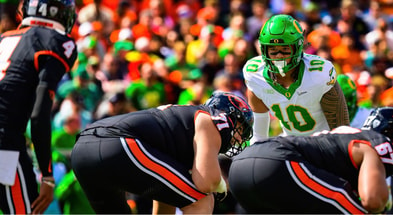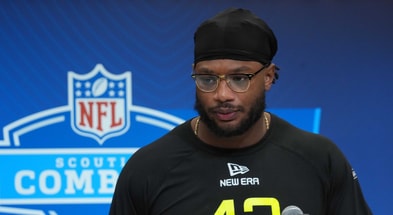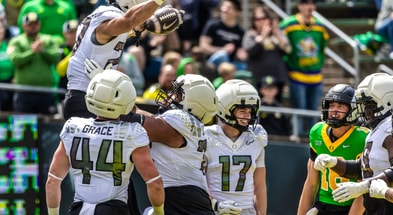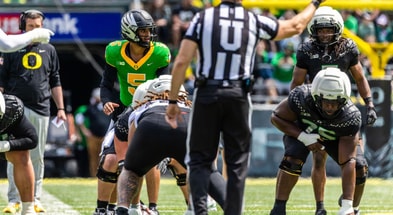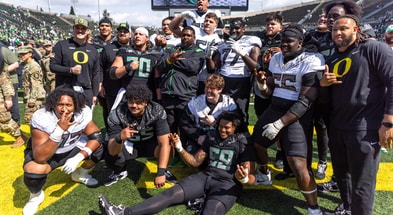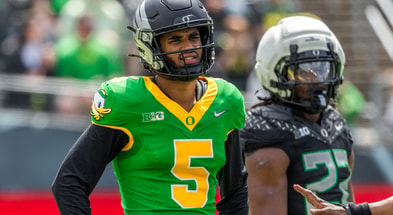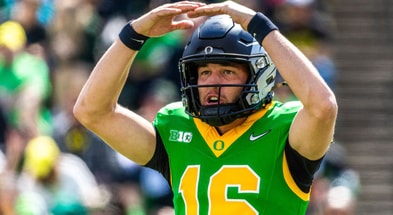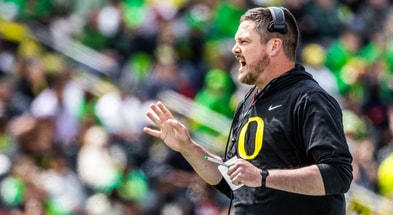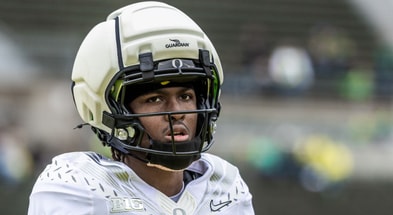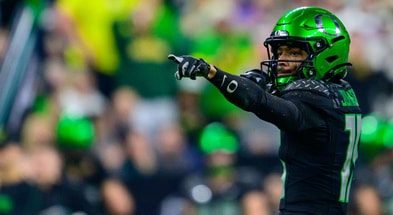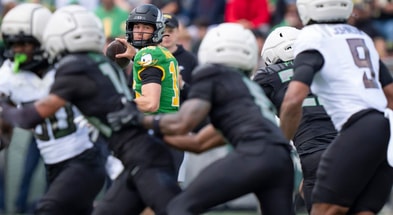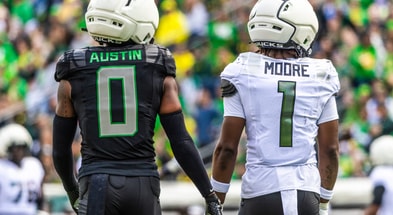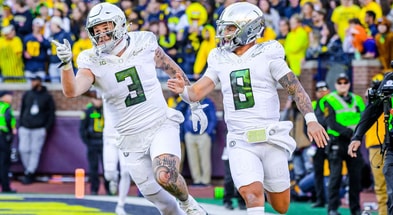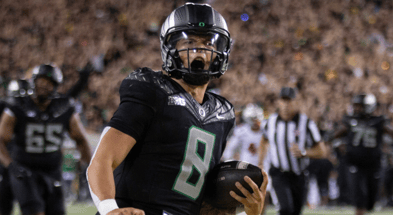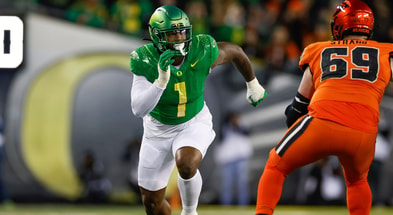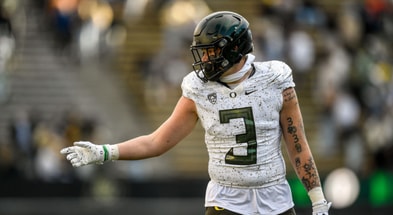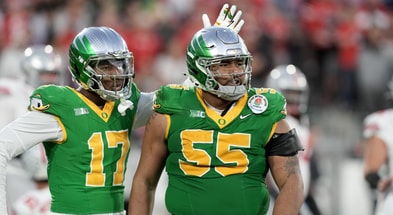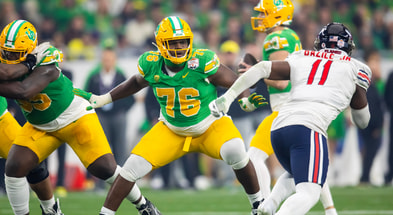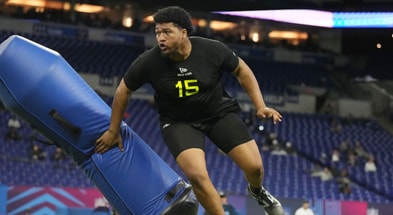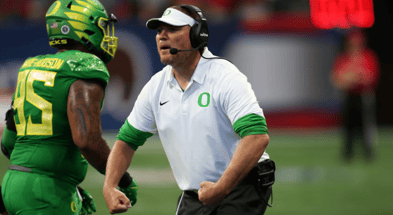'I can handle criticism'; Dan Lanning defends fourth-down decision-making following loss to Washington

While speaking with reporters on Monday, Dan Lanning defended the decision-making process that led to Oregon’s controversial fourth-down conversion attempts during Saturday’s 36-33 loss to Washington.
The Ducks failed to convert on each of their three fourth-down tries — all of which occurred during pivotal portions of the game.
They had a chance to force overtime on the final play of regulation. But Camden Lewis’ 43-yard field goal attempt sailed wide as time expired.
“If I knew none of them were going to work you would change every situation,” Lanning said. “That’s not the way those decisions work. Here’s the hard part: When you sit in this seat and I make decisions, I’m a big boy. I can handle criticism. That’s going to come and it’s deserved in this position. That’s the way it works. I trust our players. I trust our coaches. We have opportunities to win games. I’m going to be aggressive to win games.”
On the final play of the first half, Oregon — trailing 22-18 — worked its way into a 4th-and-3 scenario at the Washington three-yard line with five seconds on the clock. Rather than attempt a field goal to make it a one-point game, the Ducks looked to convert on fourth down with hopes of taking a lead into the halftime.
But Bo Nix’s pass to Buckly Irving was broken up by Dominique Hampton.
“If you look back at all of them, ultimately, field goal before half, that certainly could have gone either way,” Lanning said. “Like I said on Saturday, we felt that we had the look. If we didn’t have the look that we wanted, we were going to call a timeout and kick the field goal. Could easily turn around and say, ‘Kick the field goal’ there and feel good about it.”
Late in the third quarter, while trailing 29-18, Oregon marched 66 yards on 13 plays and had an opportunity to make it a one-score game. But, facing 4th-and-3 at the Washington 8, Nix threw an incompletion to Troy Franklin to end the drive.
While the decision backfired in the short term, it ultimately did not drastically affect the Ducks. Their defense stood tall on the ensuing Washington drive and forced a three-and-out. Then, Nix and the Oregon offense needed just three plays to score a touchdown and cut the lead to 29-26.
Top 10
- 1New
Field of 64 Projection
Predicting NCAA Baseball Tourney Field
- 2Hot
Joel Klatt
2026 Big Board
- 3
Kalen DeBoer
Reacts to transfer rumor
- 4
Michigan football
Ex-coaches get show-causes
- 5Trending
Bill Belichick
UNC concern over Jordon Hudson
Get the On3 Top 10 to your inbox every morning
By clicking "Subscribe to Newsletter", I agree to On3's Privacy Notice, Terms, and use of my personal information described therein.
However, Lanning’s final gutsy fourth-down call of the day proved to be a costly one.
The Huskies were gifted great field position after Lanning and the Ducks opted to go for it on 4th-and-3 at the UW 47-yard line. If Oregon had converted, it likely would have taken control of the game for good.
But Nix’s pass to Tez Johnson fell incomplete, and Washington took over with 2:11 to go and capitalized immediately. Penix Jr. capped off a two-play, 53-yard scoring drive with an 18-yard pass to Rome Odunze to give the game its final score.
“At the very end of the game, I don’t think there’s any scenario where I wouldn’t go for it on fourth down there,” Lanning said. “When you have an opportunity to put the game away and they’ve scored on more than 50% of their drives at that point in the game — 75 yards to 50 yards to 80 yards for them with a potent offense, they’re gonna have a lot of success in a lot of those scenarios. And they had that day. And then, you know, transversely, it gives our offense an opportunity to come back and still have a chance in that situation if we don’t get it. If we get the (first down), the game’s over. So, when I would go back, like I said, on Saturday is the 3rd-and-2. I wish we could have executed at a higher level. There was some confusion there.”
Lanning said the decision to attempt a fourth-down conversion is not a spur-of-the-moment decision that is reached each Saturday.
“Those decisions were made earlier in the week,” Lanning said. “It’s, ‘Hey, how are we gonna play this game?’ We knew this was going to be a high-scoring game where touchdowns over field goals mattered. In that scenario, like I said before half, I think you could certainly say that could go the other direction. A lot of the other scenarios, I don’t know that you play them any other way other than if you already knew what the result of the play was going to be.
“Three opportunities on a (fourth down), the chances of not getting one of those three is really unique. Especially with what we’ve done offensively so far this year.”

